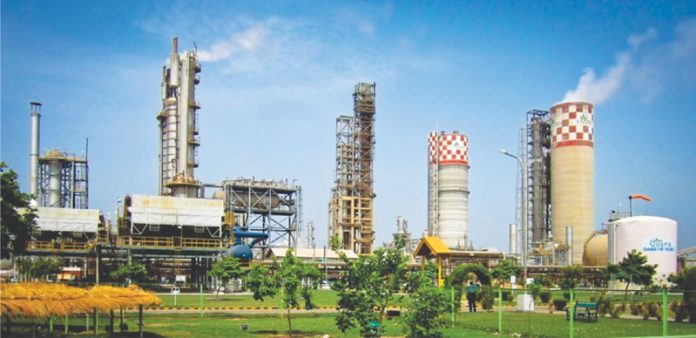ISLAMABAD: The fertiliser industry has opposed the application of the Sindh Environmental Protection Act, 2014, on warehouses and manufacturing plants, terming it an unnecessary act which would further burden customers as prices increase.
In a recent letter sent to Sindh Chief Minister (CM) Syed Murad Ali Shah, a copy of which is available with Profit, the Fertiliser Manufacturers of Pakistan Advisory Council (FMPAC) has informed that the new notification of the EPA Act issued on September 3, 2021, would have an adverse impact on the well-being of the province’s agriculture sector, especially farmers.
The letter states that the notification has included Fertiliser Warehouses in the list of facilities susceptible to causing environmental hazard in some form or the other, requesting the review of the application of this regulation as it is unwarranted in the interest of farmers of Sindh.
The industry has claimed that fertilisers are non-hazardous substances in composition and safe in handling as a finished product. “The same has also been endorsed by the United Nations Transport Regulations (UNTR) and the European Commission vide its regulation no. 1272/2008 of the European Parliament for urea and related products,” the letter reads.
According to the industry, there is such no industrial activity at warehouses which may cause spilling of any substance that includes soot, smoke, dust particles, odor, light, electro-magnetic, radiation, heat, fumes, combustion exhaust, exhaust gases, noxious gases, hazardous substances and radioactive substances, and could result in polluting air, land or water.
There is not even a remote possibility of any damage to the environment, even if a substance spills out of the package, it is meant for dilution in space. Hence, including fertiliser warehouses in the Schedule-1 reflects lack of understanding of the product dynamics on the government’s part, the letter states.
Furthermore, it says that in compliance to earlier directives of the government of Sindh, the fertiliser industry is using biodegradable plastic inner linings for packages. Therefore, additional restrictions and oversight are unwarranted in this regard. “Manufacturing plants are maintaining international standards of safety, health and environment with strict scrutiny and controls regarding the environmental impact of operation in line with the Sindh Environmental Protection Act, 2014.”
Warehousing facilities are housed in rented buildings in rural areas, which are not designed for storage of any specific products. Unwarranted pressure of the concerned authorities will lead to higher rental demand. Moreover, frequency of change of warehousing facilities and demand for fresh registration adds insult to injury, the letter adds.
The accumulated financial impact of registration of each facility and hiring the services of consultancy firms for such trivial assignments will add up to the cost of handling the products in Sindh.
In the process of unwarranted compliance of the above referred notification, farmers of Sindh will be ultimate sufferers due to higher price of fertilisers in the province, as companies will be forced to pass on the financial impact on this account, it concludes.
As per the letter, the price of urea in Pakistan is around Rs1,768 per bag, while internationally, it is selling at around Rs7,600 per bag; thus, benefiting farmers to the tune of over Rs5,000 per bag. However, recent initiative by EPA may lead to burdening farmers in Sindh. They are already discriminated against due to non-availability of subsidy on DAP and other fertilisers, and hence would remain under huge financial pressure as compared to the other three provinces.




